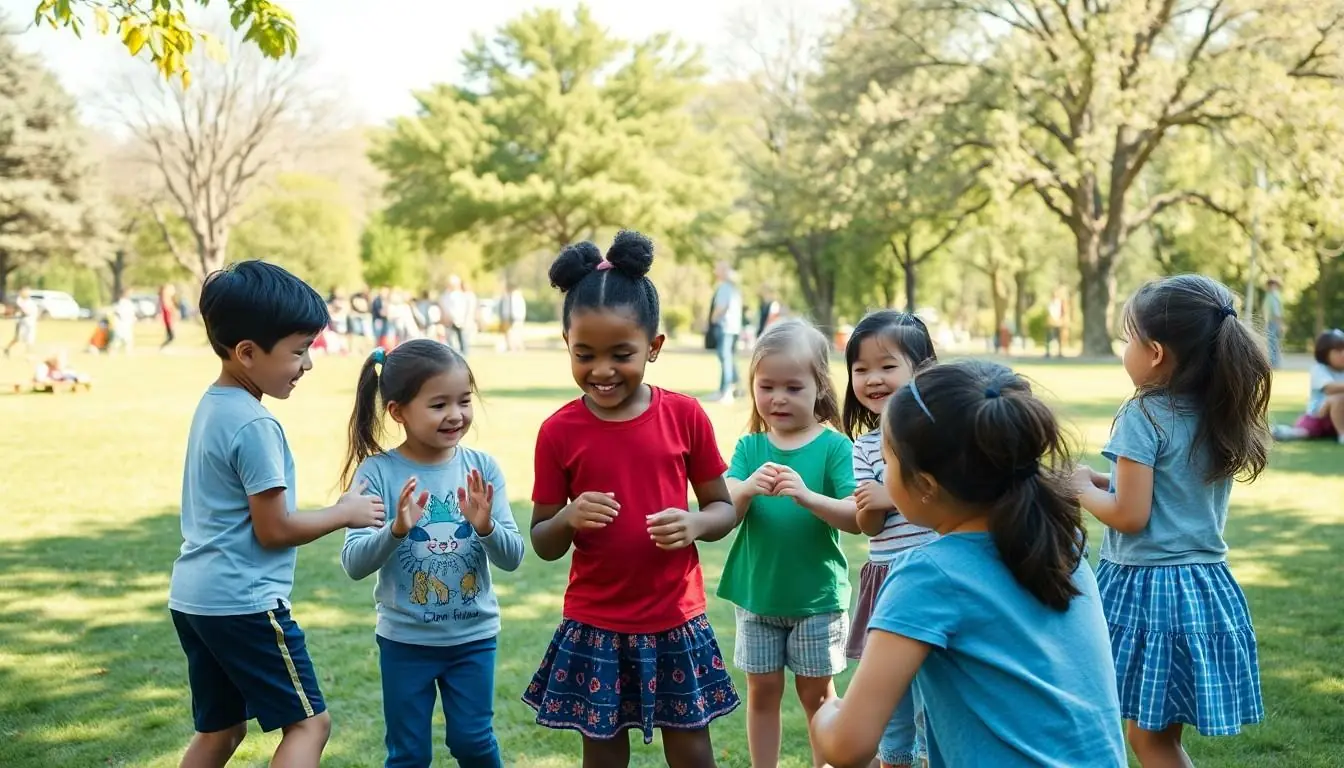Teaching a child respect and discipline might sound like a daunting task, but it doesn’t have to be a battle of wills. With the right approach, parents can turn this journey into an adventure filled with laughter and learning. After all, who wouldn’t want a mini version of themselves that knows when to say “please” and “thank you” while also mastering the art of not throwing tantrums in public?
Table of Contents
ToggleUnderstanding Respect and Discipline
Respect and discipline serve as cornerstones in a child’s development. Teaching these values fosters better behavior and relationships.
Definition of Respect
Respect encompasses valuing others’ feelings, rights, and traditions. It involves listening actively and recognizing personal boundaries. Children demonstrating respect show kindness and consideration towards peers and adults. They learn to appreciate diverse viewpoints, contributing to a more inclusive environment. Instilling respect also includes teaching children to express gratitude and politeness through phrases like “please” and “thank you.” These fundamental manners build healthy interactions, promoting strong social skills. Additionally, children understand the significance of treating others how they desire to be treated.
Definition of Discipline
Discipline refers to training that develops self-control, enabling children to manage impulses and make responsible decisions. Effective discipline involves setting clear expectations and consistent consequences for behavior. Children learn that actions lead to outcomes, fostering a sense of accountability. It also teaches patience, resilience, and the ability to cope with disappointments. Parents can coach children in problem-solving to address mistakes constructively. Establishing routines further aids in promoting discipline, as children thrive on predictability. Through ongoing practices, children gain the skills necessary for self-regulation, laying a foundation for future success.
The Importance of Teaching Respect and Discipline

Teaching respect and discipline lays the foundation for a child’s personal and social development. These values inspire better interactions, enhance emotional intelligence, and increase overall well-being.
Benefits for Children
Respect fosters kindness and promotes a sense of belonging in social settings. Children learn to appreciate diverse perspectives, which strengthens relationships with peers and adults. Demonstrating respect encourages empathy; children become more sensitive to the feelings and needs of others. Discipline cultivates self-control, helping kids manage their impulses effectively. Establishing clear routines supports accountability and responsibility, equipping them with skills for future successes. Furthermore, respectful and disciplined children often experience higher self-esteem, as they recognize the positive outcomes of their behavior.
Long-Term Impact on Behavior
Respect and discipline shape a child’s behavior into adulthood. With respect ingrained, individuals are likely to engage in constructive communication and foster healthy relationships. Emotional resilience develops, allowing children to navigate conflicts skillfully. Discipline instills patience and problem-solving abilities, essential in professional and personal settings later in life. Expecting consistent behavior translates to stability in relationships and decision-making. As adults, those who learned respect and discipline in childhood often become role models, guiding the next generation in cultivating these vital traits.
Effective Strategies for Teaching Respect
Teaching respect involves proactive approaches that encourage positive behaviors. Parents play a critical role in guiding their children through this process.
Modeling Respectful Behavior
Modeling respectful behavior sets a powerful example for children. Actions often speak louder than words. When adults consistently demonstrate kindness and consideration, children observe and emulate these behaviors. Showing gratitude, listening actively, and valuing others’ perspectives form a solid foundation for respect. Engaging in respectful conversations at home creates an environment where children feel safe to express themselves. Encouragement to illustrate respect in daily interactions enhances understanding. Notably, consistency is key; children learn best when they see respect practiced regularly in their surroundings.
Encouraging Empathy
Encouraging empathy helps children understand and value the feelings of others. Discussions about emotions promote awareness of how actions impact those around them. Engaging in role-playing activities allows children to experience different perspectives. Asking questions about how someone else might feel in a situation deepens their understanding. Highlighting examples from books or movies can illustrate empathy effectively. Celebrating acts of kindness within the family reinforces the importance of considering others’ emotions. Consistently emphasizing empathy nurtures respect in social interactions. Empathetic children often become more thoughtful individuals, developing crucial interpersonal skills throughout their lives.
Instilling Discipline in Children
Discipline shapes a child’s character. Establishing consistent expectations promotes desirable behavior.
Consistent Rules and Boundaries
Children thrive with clear rules. Parents should establish specific household expectations to provide structure. Consistently applying these rules reinforces understanding and accountability. When boundaries are consistent, children feel secure. Inconsistency leads to confusion and testing of limits. For effective discipline, parents and caregivers must agree on rules and consequences. Repetitive enforcement of boundaries aids in learning patience and responsibility. Example scenarios engage children, illustrating why rules matter. Incorporating discussions about rules allows children to express their views. This dialogue facilitates mutual respect and understanding between parents and children.
Positive Reinforcement Techniques
Positive reinforcement motivates children to exhibit good behavior. Parents can recognize and reward desired actions, such as completing chores or showing kindness. Rewards can take many forms, from verbal praise to small privileges. Celebrating successes builds self-esteem and reinforces positive choices. It’s essential to be specific in praise, acknowledging particular behaviors like sharing or helping others. Consistent recognition helps engrain these actions into the child’s routine. Engaging children in setting achievable goals promotes autonomy and accountability. Rewards become meaningful when children understand the connection between behavior and positive feedback. This technique fosters a supportive environment where discipline is nurtured, not imposed.
Teaching children respect and discipline is a rewarding journey that shapes their character and future relationships. By modeling respectful behavior and establishing clear expectations, parents can create an environment where these values thrive. Encouraging empathy and celebrating achievements further reinforces positive behavior, making the learning process enjoyable.
As children internalize these lessons, they develop essential skills for navigating life’s challenges. The foundation built during these formative years not only influences their behavior but also contributes to their emotional intelligence and resilience. Ultimately, instilling respect and discipline equips children to become compassionate and responsible adults, paving the way for a brighter future.






